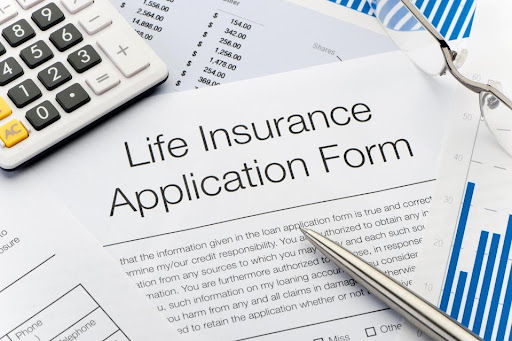For many people, diabetes is a difficult condition to live in their everyday lives, and getting diabetes life insurance can be a sophisticated process. Diabetes is seen as a high-risk condition, which may make it difficult and frustrating for people with diabetes to get the right cover they require at a reasonable price. However, with a better understanding of how insurance companies figure out the price of the cover, you can maximise your potential of obtaining the perfect price.
These are the few things we’ll cover:
Complications for life insurance companies and diabetics.
Diabetes is a chronic medical disorder that impairs the body’s capacity to make or use insulin, which is essential for controlling blood sugar levels. Heart disease, kidney disease, nerve damage, and visual issues are just a few of the health consequences that diabetics are more likely to have. Certain health issues might raise the chance of dying and make it more difficult to get life insurance protection.
According to life health insurers, their line of work is risk analysis. They must assess the risk of covering a person with diabetes and adjust the policy’s cost accordingly. The cost of the insurance will increase with the level of risk. Because of their increased risk of complications, individuals with diabetes are more likely to submit a claim.
How do life insurance companies determine the cost?
When it comes to diabetic life insurance, there are several factors that life insurance companies take into consideration when determining the cost of the policy:
Type of diabetes –
Life insurance companies will ask whether the applicant has type 1 or type 2 diabetes. Type 1 diabetes is an autoimmune disorder that is typically diagnosed in childhood, while type 2 diabetes is usually diagnosed later in life and is often associated with lifestyle factors like diet and exercise.
Age at diagnosis –
Life insurance companies will want to know the age at which the applicant was diagnosed with diabetes. People who are diagnosed at a younger age may be viewed as a higher risk than those who are diagnosed later in life.
Management of diabetes –
Life insurance companies will assess how well the applicant is managing their diabetes. This can include factors like A1C levels, blood pressure, and cholesterol levels.
Health complications –
Life insurance companies will ask about any health complications related to diabetes that the applicant has experienced, such as heart disease or kidney disease.
Other health conditions –
Life insurance companies will also ask about other health conditions that the applicant may have, as these can also affect the risk assessment.
Diabetes Life Insurance Expert*
Common misconceptions about diabetes life insurance?

It may be challenging for people who have diabetes to get cover because of the many myths about diabetic life insurance. These are a few widespread myths:
Diabetics cannot get life insurance –
It is totally false that people with diabetes cannot purchase life insurance. People with diabetes can still get life insurance, though it may be more difficult to do so.
Diabetes life insurance is too expensive –
It is true that diabetic life insurance might be more expensive than regular life insurance, but there are still solutions that are within the reach of most people’s budgets.
Cover for diabetes life insurance is limited –
This isn’t always the case. For those with diabetes, a variety of cover choices are provided by several life insurance providers.
Factors to consider when selecting a policy.
It’s crucial to take into account a variety of factors when choosing a diabetes life insurance policy to make sure you’re receiving the most suited cover available, we have a step-by-step guide on this. These are some key factors to keep in mind when looking at a diabetes life insurance policy:
Your present condition of health –
Before giving anyone a price for cover, insurance providers will need to know your current A1C levels, blood pressure, and other aspects of your health. Be ready to give the insurance company complete medical information.
Diabetes type and seriousness –
Insurance companies will ask if you have type 1 or type 2 diabetes and when you were first diagnosed. If you have diabetes-related issues like neuropathy or retinopathy, they’ll also want to hear about these.
Age and gender –
These factors may affect the cost of your insurance. Women often live longer than males do, and rates may be greater in elderly people because of greater health risks.
Policy cover –
Consider the length of the insurance and the amount of cover you need. Because whole life insurance gives cover for the rest of your life, term policies only provide cover for a specific time.
Premiums –
To get the greatest deal, compare the costs that various insurance providers are willing to provide. It’s crucial to bear in mind that certain companies may charge higher premiums but offer more comprehensive cover, whilst others may charge lower prices but offer fewer benefits.
Tips for finding the best policy:
Getting the ideal insurance policy can be difficult, but with some research and expert advice, you can obtain the cover that’s best for you. Here are some suggestions for getting you the best deal:
Work with an experienced agent –
Finding diabetic life insurance cover can be difficult in the vast world of diabetic life insurance. An experienced insurance agent can give some guidance and help you find what’s best. Start looking for a specialist broker that has experience working with diabetics.
Diabetes Life Insurance Expert*
Discover your options –
Don’t give up after receiving a quote from the first insurance company you approached that was too pricey. Get the policy that works in your favour by comparing prices and cover offered by different providers.
Look at a guaranteed issue policy –
If you’re having problems getting cover because of your diabetes, take into account a guaranteed issue insurance. These plans may have fewer cover levels and higher premiums, but they do not call for a medical exam or a thorough health history. Learn more about guaranteed acceptance policies here.
Strengthen your health –
Changing your food and exercise habits for the better will not only enhance your general well-being but will also help you manage your diabetes more effectively. You might be able to get your diabetic life insurance cover cheaper if you do this.
Be realistic –
When submitting an application for diabetic life insurance, be truthful about your current health and medical background. Important medical information that is overlooked might lead to a claim being rejected later.








